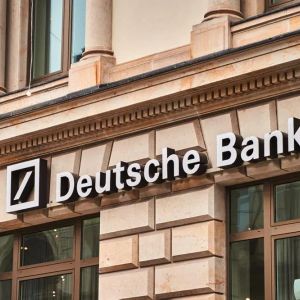Deutsche Bank is at the forefront of a bold experiment to tackle the regulatory risks that have long plagued institutions. The financial bank revealed its plan to solve the issues using public blockchains like Ethereum. In November, the German bank introduced Project Dama 2, an innovative Layer 2 asset-servicing platform. Despite backlash from major industry players like Tether , this new initiative aims to solve compliance challenges for regulated financial institutions. It targets issues like unintentional transactions with sanctioned entities or criminal networks. These obstacles have long hindered seamless blockchain adoption in traditional finance. Bridging Compliance and Blockchain with Layer 2 At its core, Project Dama 2 integrates with Ethereum, leveraging the Layer 2 technology to offer faster and more cost-efficient transactions. However, innovation is not centered on reducing costs. It also focuses on redefining how banks engage with the blockchain. Boon-Hiong Chan, Deutsche Bank’s Asia-Pacific innovation lead, emphasized the risks of public blockchains like Ethereum. He pointed out unclear transactions and accidental payments to sanctioned entities as key issues. Sudden disruptions, like unexpected system changes, are also major challenges. To address these challenges, Project Dama 2 adopts a dual-chain approach, which Chan believes could mitigate many of these concerns. This Layer 2 platform is an integral part of Project Guardian. The Monetary Authority of Singapore launched this initiative. It aims to unite 24 financial institutions to tokenize assets and explore blockchain’s potential. A Collaborative Effort to Tokenize Finance The development of Project Dama 2 reflects a strategic partnership between Deutsche Bank, Memento Blockchain Pte, and Interop Labs. The platform employs ZKsync technology, a sophisticated tool enabling banks to use public blockchains while maintaining enhanced regulatory control. Chan highlighted how this model allows financial institutions to create a detailed list of validators. It also ensures transactions are processed transparently and rewards are distributed fairly. Moreover, the system grants regulators “super admin rights,” enabling real-time monitoring of fund movements. By using this approach, Chan explained that banks no longer rely on Layer 1 blockchains for detailed transaction records. The minimum viable product (MVP) for Project Dama 2 is set to launch next year, pending regulatory approval. This platform could redefine how traditional banks interact with decentralized ecosystems if successful. Beyond Compliance: Deutsche Bank’s Growing Crypto Influence While Project Dama 2 captures headlines, Deutsche Bank’s blockchain ambitions do not stop there. The institution has actively forged strategic partnerships in the crypto sector. Recently, it joined forces with Keyrock to enhance the crypto-native market maker’s global services and expand its reach in key regions. Deutsche Bank has consistently advocated for blockchain technology to solve financial sector challenges like margin compression. In 2019, the financial bank joined JPMorgan’s blockchain-based Interbank Information Network. The move reinforced the bank’s role as a leader in adopting blockchain to enhance efficiency and transparency in banking operations. The post Deutsche Bank Tackles Institutional Regulatory Risk With Ethereum appeared first on TheCoinrise.com .













